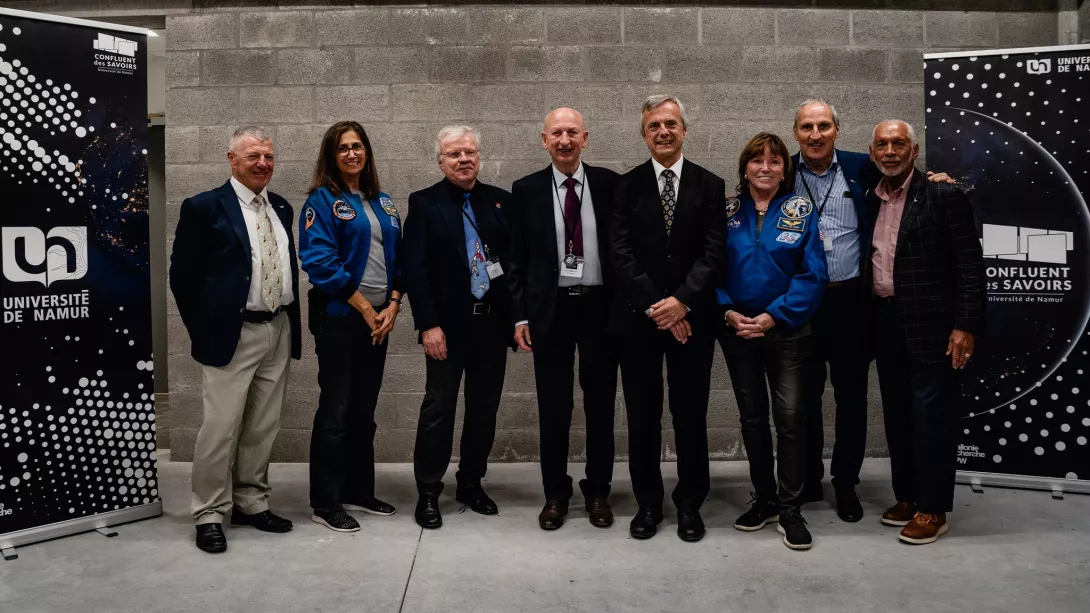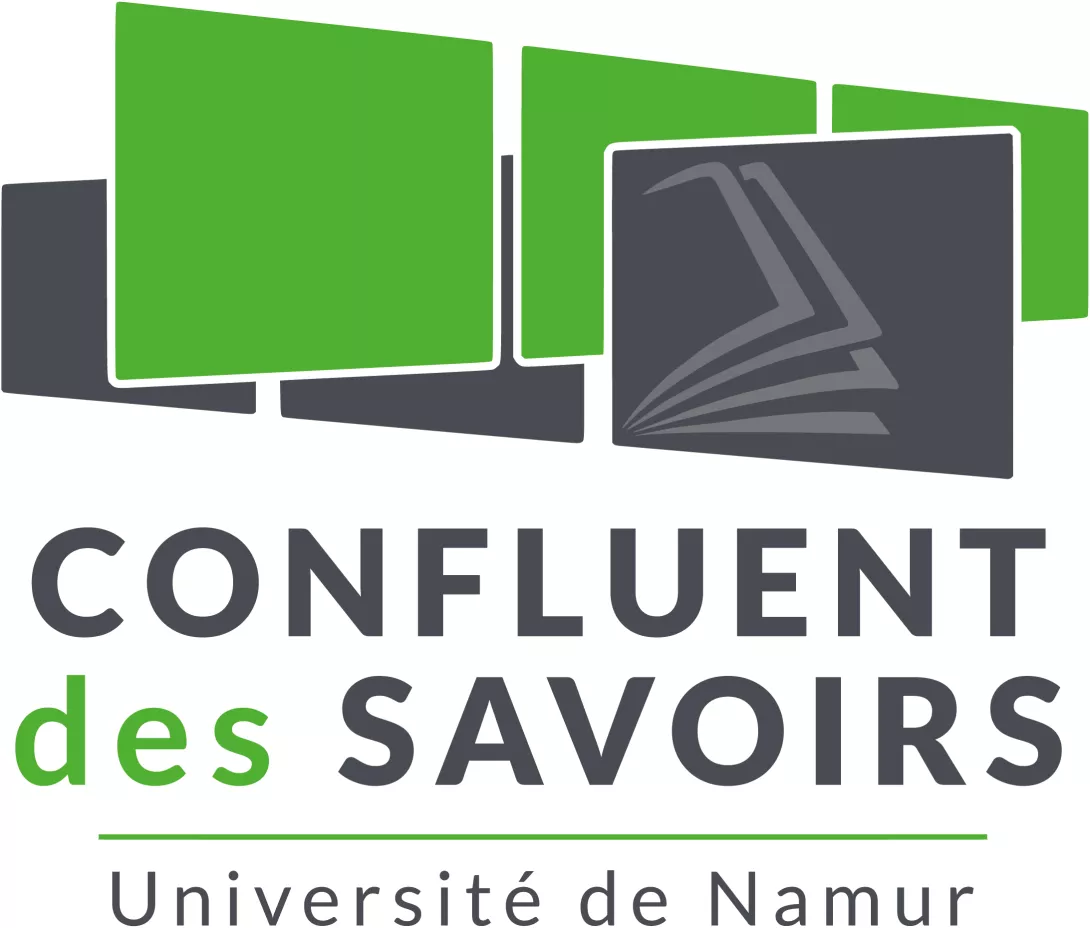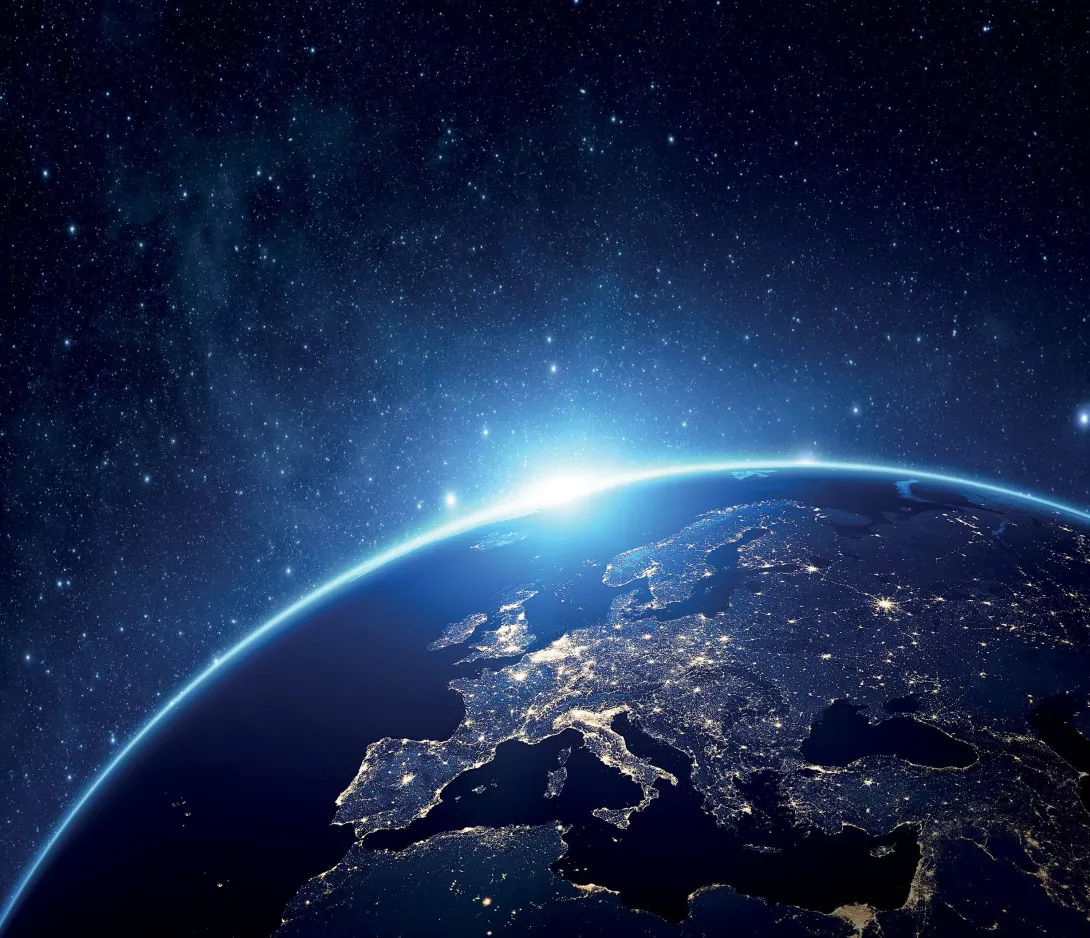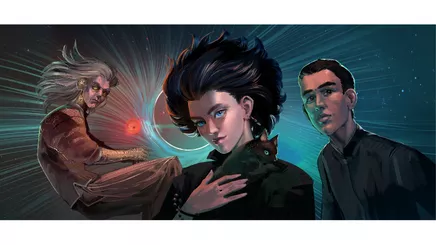
Space conquest and research have changed our lives
The conquest of space, made possible by scientific research in this field, has changed our daily lives. Numerous technological advances and space breakthroughs have had an impact on various areas of everyday life: weather monitoring, climate change forecasting, television and mobile telephony, navigation systems, medical innovations, etc. A large number of research teams in universities, including the University of Namur, and Belgian research centres are active in the space field; they mobilise and strengthen Belgian and Walloon space knowledge and know-how.
Studies and jobs of the future
The Walloon space sector occupies an important place in the Walloon economy and in the European space sector; Wallonia has a large network of companies and a recognized know-how. This know-how is bound to develop in the years to come and constitutes one of the great assets for the future. The University of Namur offers its students the opportunity to discover space through astronomy courses and the use of the Antoine Thomas Astronomical Observatory, a unique observation site in the heart of the campus and the Walloon capital.
Popularisation events on astronomy
Throughout the year, numerous activities and events were proposed to school groups, families and those curious about science and astronomy.
Spring of Science 2022
The “Printemps des Sciences” is the annual event for science and technology lovers in the Walloon-Brussels Federation. Coordinated by the Sciences.be network on the initiative of the Wallonia-Brussels Federation, this event to raise awareness and disseminate science offers, for a whole week, numerous free activities for students, their teachers and the public.
From the visit of the Astronomical Observatory to the discovery of telescopes and their uses, from the exploration of new worlds to the space adventure through mathematics and games, school groups and the public discovered space and astronomy through numerous activities.
Belgian Space Week 2022 - Famous astronauts at the UNamur
In 2022, we celebrated two important space anniversaries: the 30th anniversary of the first Belgian in space, Dirk Frimout, and the 20th anniversary of Frank De Winne's first space flight. The Belgian Space Week was organized in October to celebrate these anniversaries. This event had a triple objective: to raise awareness, to interest, and to highlight the important Belgian contributions to the space industry and research. For one day, UNamur offered schools, students and the general public a journey beyond the stars in the company of international astronauts to discover the research carried out at the university in the field of space. Why explore space? What are the current challenges of space exploration? What is the state of scientific knowledge in this field? What are the opportunities and challenges of the space sector? These are just some of the questions that were addressed throughout the day.
An hour with an astronaut
Secondary school pupils as well as students and members of UNamur were invited to participate in a meeting with astronauts. They shared their experiences in space, life on board a spacecraft, their astronaut career paths, their messages for young people, etc. The meeting was an opportunity to ask questions to the astronauts and to discover more about the space professions. The students came away with stars in their eyes.
Conference for the public "From Namur to space”
A journey that the participants travelled accompanied by crews of brilliant scientists. The journey started with an introduction by the star of astronauts, Dirk Frimout. In the first part of the trip, the crew of Boris Hespeels, Anne Lemaître and Sarah Baatout showed us the technological advances that space research brings us. In the second part of the trip, professors Anne-Sophie Libert, Dominique Lambert and André Füzfa brought their expertise to explore our interest in interstellar travel, and to learn more about ourselves and humanity.
Space: the new Wild West? - Interuniversity conference
The Sciences.be network, an inter-university network for disseminating and raising awareness of science, technology and STEM culture, organises several online scientific meetings during the year.
During this meeting, the speakers discussed and exchanged on the New Space.
Billionaires, the military and industrialists are currently engaged in a veritable space rush: a constellation of 12,000 satellites here, another 20,000 there, rockets for wealthy tourists, space hotel projects, space shootings, launchers and giant spacecraft to walk on the Moon again, conquer Mars... Is space the new frontier or the new Wild West? Has this dream machine become the new playground of capitalism? Can we still curb its excesses? Should we be afraid of the New Space?
Attendance in a few figures
650
pupils
770
people curious about astronomy
170
students
To go further:
- (re)Watch the conference "From Namur to Space"
- (re)Watch the conference "Space: the new Far West?"
- Discover the UNamur Astronomical Observatory
- More about the Namur Institute for Complex Systems (naXys)
- Find out more about the space sector in Wallonia
- More about the space sector in Belgium
- Find out more about the space jobs in Belgium

The UNamur joins the European UniversEH alliance
This is a historic signature for the University of Namur: since December, it is part of the European alliance European Space University for Earth and Humanity (UniversEH), which focuses on the theme of space. This is a real recognition of the UNamur expertise in the field of space, and a gateway to new international collaborations in both teaching and research, in a field that is a source of employment and socio-economic development.

The Call of the Stars: André Füzfa's first SF novel
A work of educational and philosophical science fiction, “À l'appel des étoiles” (The Call of the Stars) is the first novel by the professor and researcher in astronomy at UNamur. A fiction that respects the laws of physics and takes you on an interstellar sailing ship in pursuit of light!
